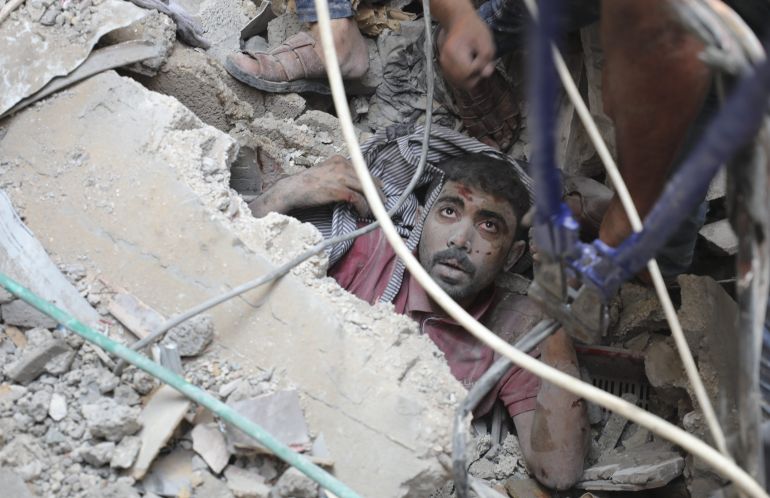In a devastating escalation of violence, more than 700 Palestinians lost their lives during overnight Israeli air raids on Gaza, marking the highest 24-hour death toll since the commencement of Israel's bombardment of the besieged region earlier this month.

On Tuesday, the Israeli military confirmed striking over 400 "Hamas targets" and claimed the deaths of numerous Hamas fighters in these assaults. It also cautioned that achieving its objective of dismantling the Palestinian group would require additional time.
Israel's military offensive in Gaza was launched in response to a surprise attack by Hamas fighters that resulted in the deaths of at least 1,400 people in southern Israel on October 7.
The Gaza health ministry, under Hamas governance, has reported that the Israeli offensive has resulted in the deaths of at least 5,791 Palestinians, including 2,360 children.
A staggering 704 lives were lost in the preceding 24 hours alone, as revealed by the ministry on Tuesday.
Ministry spokesperson Ashraf Al-Qidra characterized this grim statistic as the highest daily death toll recorded during the two-week Israeli bombing campaign.

Gaza correspondent for Al Jazeera, Youmna ElSayed, described the dire situation: "Thousands of families have been instantly displaced; it's just full of rubble and debris everywhere. You can hear the sound of drones and Israeli jets in the sky. Everyone says, everyone feels that there is no safe place in the Strip to be in anymore."
The Israeli military announced that three Hamas deputy commanders were among those killed in the airstrikes.
Eyewitnesses and health officials reported that numerous residential buildings were hit, including some in southern Gaza, where Israel had advised civilians to seek shelter.
In addition to the relentless airstrikes, Israel has imposed a comprehensive blockade on Gaza, severely restricting access to food, water, medicine, and fuel. Over 40 medical facilities have had to halt operations due to shortages and damage caused by the bombings, according to the health ministry spokesperson.
While a few aid trucks have crossed from Egypt into Gaza since Sunday, the United Nations has sounded the alarm about a looming "humanitarian catastrophe" if aid deliveries are not substantially increased.

Jeremy Laurence, spokesperson for the Office of the UN High Commissioner for Human Rights (OHCHR), stressed, "The aid which resumed from Egypt over the weekend is a mere drop in the ocean of what is needed."
Fuel, a crucial commodity omitted from the deliveries due to an agreement with Israel, has been identified as an urgent requirement by the United Nations Relief and Works Agency for Palestine Refugees in the Near East (UNRWA). Tamara Alrifai, UNRWA spokesperson, emphasized the vital role of fuel, stating, "Without fuel, the trucks themselves cannot move, and the generators cannot produce electricity for hospitals, bakeries, and the water desalination plant."
On Tuesday, UN humanitarian agencies appealed urgently for unimpeded access to provide aid to Gaza, as the situation in the territory reached a critical juncture.








